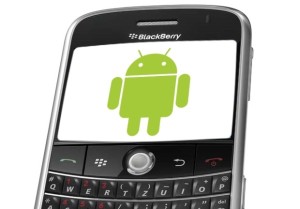 Mobile management vendors including Good Technology and MobileIron are increasing their efforts to pitch Android and iOS as alternatives to BlackBerry, thanks to improved security and management tools.
Mobile management vendors including Good Technology and MobileIron are increasing their efforts to pitch Android and iOS as alternatives to BlackBerry, thanks to improved security and management tools.
On Monday, BlackBerry announced it had abandoned plans to sell itself and will instead take a US$1 billion loan from a consortium involving shareholder Fairfax Financial Holdings. The company is also getting a new leader in former Sybase CEO John Chen, who joins the company as chairman and interim CEO.
While the deal buys BlackBerry more time and a CEO who understands enterprise mobility, it still faces many challenges and CIOs need to plan for all possibilities. IT faces additional pressure from employees who want to use a wider variety of devices.
“BlackBerry’s decision to remain a public company increases the uncertainty their customers feel. It is accelerating the need to develop long-term mobility strategies that account for new mobile platforms,” said Jeff McGrath, senior director of product marketing at Good Technology.
Good is one of the companies looking to benefit from BlackBerry’s misfortunes, helping enterprises cope with multi-OS environments and implement bring your own device programs.
Recently it launched consultancy services aimed at enterprises that want to migrate. The company’s core offering is Good for Enterprise, which, for example, secures email and browser access with Common Criteria EAL-4+ certification and FIPS 140-2 validated encryption for iOS and Android. The platform is compatible with Windows Phone, as well.
Competitor MobileIron also wants a piece of the pie, and on Wednesday it announced a release of its Android package. The company has worked with Divide – previously Enterproid – to offer native email, contacts and calendar functions. All content is encrypted and stored in a secure container on the mobile device. It too now has FIPS 140-2 validated encryption, MobileIron said.
MobileIron has also integrated its management software with Samsung Electronics’ Knox platform, and made it possible to protect IBM’s Notes Traveler client for Android.
Even though the competition has improved, replacing BlackBerry’s integrated device management functionality and excellent security is a tall order. The company is still the gold standard when it comes to mobile security, according to Ovum analyst Richard Absalom.
Depending on the level of security needed, different measures are required, from regular mobile device management to platforms that can separate enterprise apps from the rest of the OS, said Leif-Olof Wallin, research vice president at Gartner.
Successfully migrating from a BlackBerry to a multi-OS mobile environment involves a combination of thoughtful planning and proper execution, according to MobileIron. As always, a good place to start is to find out what employees are really using and what they want to use, Absalom said.
So far, iOS has been more successful than Android in the enterprise sector. Android hasn’t had anywhere near the same impact on enterprises as on consumers, thanks in part to a fragmentisation that drives up support and management costs, according to Wallin.
To get around that, enterprises should standardise on a small number of specific device types, MobileIron wrote in a white paper on BlackBerry migration. It’s also best to start with the basics, like standardising email, before moving on to more advanced management activities, the company wrote.
Allowing multiple OSes to be used isn’t just about management: “A lot of people don’t seem to think too much about how much more expensive data and call plans will be. Data usage on an iPhone compared to a BlackBerry is massively higher,” said Absalom.
Good Technology and MobileIron aren’t the only vendors that offer software to help replace BlackBerry smartphones. Other alternatives include AirWatch, Citrix Systems, SAP and Samsung, according to Wallin. Absalom adds Fiberlink, BoxTone, Soti and Apperian to that list. A potential starting point is also BlackBerry’s own cross-platform offerings, he said.
However, BlackBerry isn’t giving up without a fight. It is still a “brand with enormous potential – but it’s going to take time, discipline and tough decisions to reclaim our success,” Chen said in statement on Monday.





